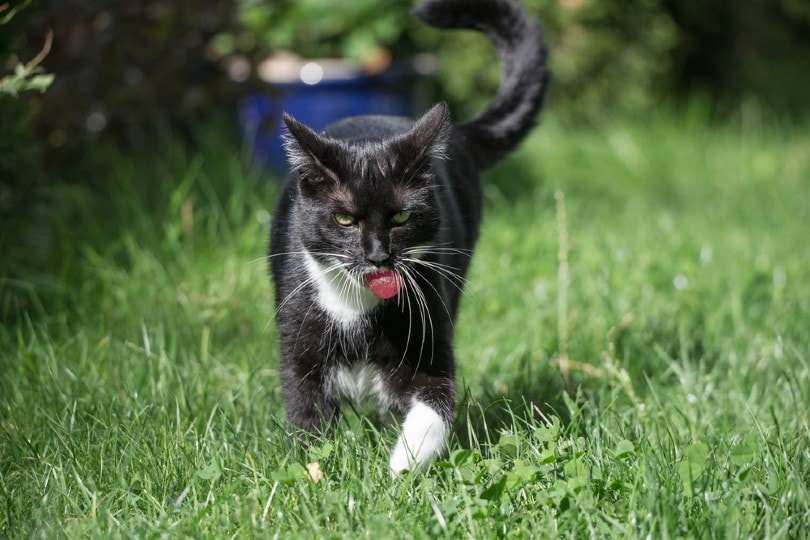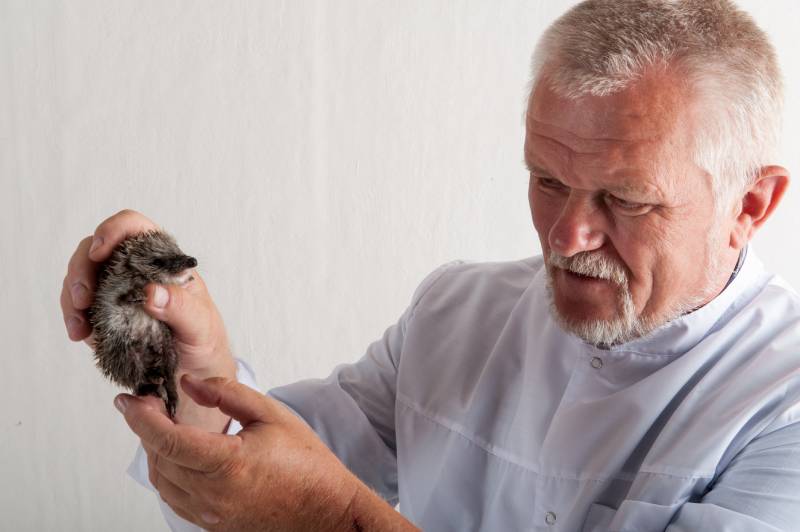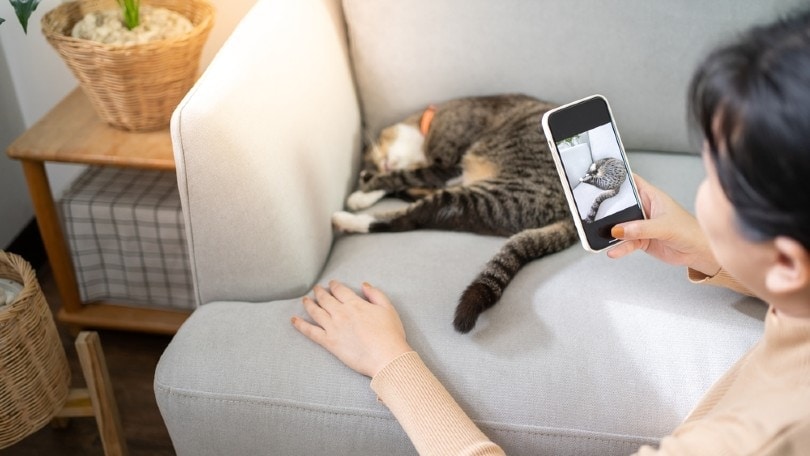Can Cats Eat Papaya? Nutrition Facts & FAQ
Updated on

The sweet, juicy, and delicious papaya is a welcome treat on a hot summer day, but has your cat ever shown interest in the papaya that you’re eating? Is it okay to give your cat a bite of the fruit? Is it safe for cats? Papaya isn’t toxic to cats, but it shouldn’t be a big part of their diet.
Here, we take a closer look at the papaya fruit and how much is okay to give your cat. We also discuss what might happen if your kitty eats too much.
All About Papaya
Papaya is a delicious tropical fruit that is also known as the pawpaw. It is believed to have originally been grown in Southern Mexico and Central America, but it’s grown today in many tropical regions. It is commonly used in fruit salads, sherbets, pies, and fruit juices.
Papayas have a range of health benefits for humans because they are full of nutrients. They are exceptionally high in vitamin C, fiber, and antioxidants.
The benefits of eating papaya include:
- They might help promote heart health.
- They can help improve digestion and are known to aid in constipation and IBS (Irritable Bowel Syndrome).
- The antioxidants in papaya can help lower the risk of a few diseases and reduce oxidative stress.
- They help reduce inflammation.
- Papaya contains lycopene, which is known to decrease the risk of cancer.
- The antioxidants can help the skin remain youthful by defending against and repairing skin damage and wrinkles.
However, what do we know about giving cats papaya? Do they benefit from eating them the way we do?
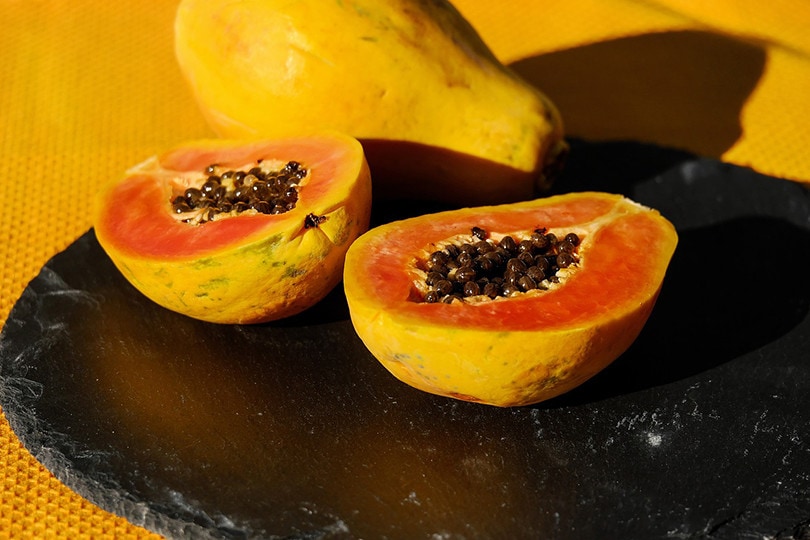
Cats and Papaya
Papaya is safe for cats to eat in that it isn’t toxic. However, we don’t recommend giving it to your cat as part of their regular diet. Cats have specific dietary requirements that fruit is not a part of. A small amount of papaya given to your cat on occasion will not harm them. However, too much could lead to stomach upset and diarrhea, partly due to the high fiber content and excess carbs.
Papaya is also quite high in sugar. Too many sweet things can lead to health problems in your cat, like obesity and diabetes. In addition, cats can’t taste sweet things. This means they don’t typically go after anything sweet, so they don’t usually show much interest in fruit.
A Cat’s Ideal Diet
Cats are obligate carnivores, which means their nutrients are found solely in animal products. This includes the big cats and our beloved pets. As obligate carnivores, cats are meant to eat primarily meat, which is where they get the bulk of their necessary nutrients.
This also means cats have a much harder time digesting vegetation and plant matter. They don’t derive much nutritional value from fruits, veggies, and plants. More importantly, the only way that cats can receive their required vitamin A is from animal protein. This is why it’s so important to feed your cat foods that are meant for cats. Cat food contains the correct balance of vitamins, minerals, and nutrients, in addition to the essential animal protein.
Armed with this information, you can try to make more of an educated decision on finding the best foods for your cat. Speak with your veterinarian if you aren’t sure which diet to choose for your feline friend.
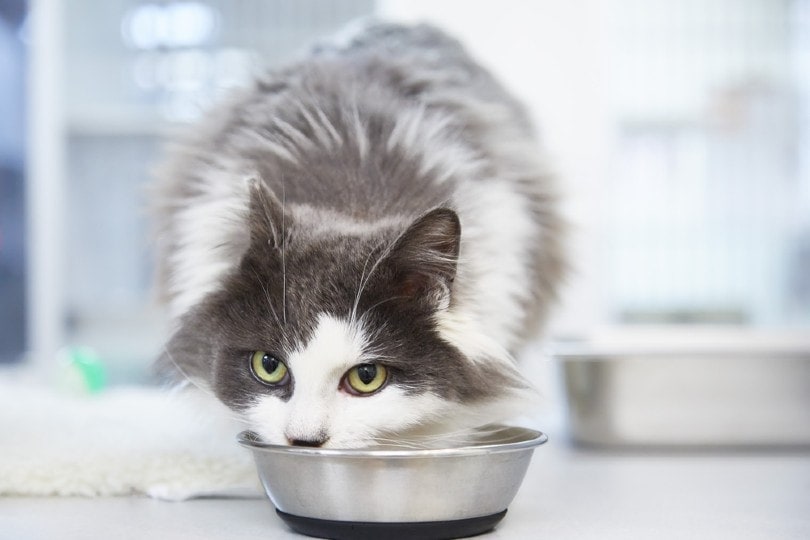
How About Papaya Seeds?
You should avoid giving papaya seeds to your cat. They aren’t particularly tasty and won’t provide any health benefits to your kitty. There’s also a risk that they can become stuck in your cat’s teeth and can prove to be a choking hazard.
Can Your Cat Eat Dried Papaya?
Dried papaya, or any dried fruit, is not recommended for cats. When fruit is dried, the sugar in it becomes very concentrated, kind of like fruit juice. This means dried papaya is exceptionally high in sugar, so it’s definitely not a healthy snack for cats. If you do give your cat a small taste of papaya, make sure it is fresh and ripe. Avoiding it is also an option.
What’s the Best Way to Prepare Papaya?
How you prepare papaya for yourself is how your cat should get it. It needs to be ripe, and it should have the skin and seeds removed. You can put a bit of fresh papaya juice in a bowl or cut the fruit up into small pieces. Papaya is soft, so it should be easy to eat.
Now that you know what you can safely feed your cat, it’s just as important to find a bowl that supports their health and well-being. With whisker-friendly bowls and a wide tray to catch any spills, our Hepper NomNom Cat Bowl is our favorite option.

Conclusion
A little papaya should be fine for most cats. Whether they’ll eat it is a different story. You might offer some to your cat and find that they’re not at all interested. In the long run, it’s probably best if you don’t offer papaya to your kitty regularly, since it’s something that isn’t a required part of their diet.
Remember to speak with your veterinarian when you have concerns or questions regarding your cat’s diet. If you’re thinking about giving papaya to your cat because you’re hoping to add extra nutrients to their diet, your vet will help you find something more appropriate.
So, if your cat sneaks a little papaya off your plate, it’s nothing to be concerned about. Just don’t make it a habit.
You might also be interested in:
- What Do Cats Like to Eat for Breakfast? What’s Best for Them?
- Homemade Probiotics for Cats – 3 Recipes (Vet Approved)
Featured Image Credit: 3centista, Pixabay



